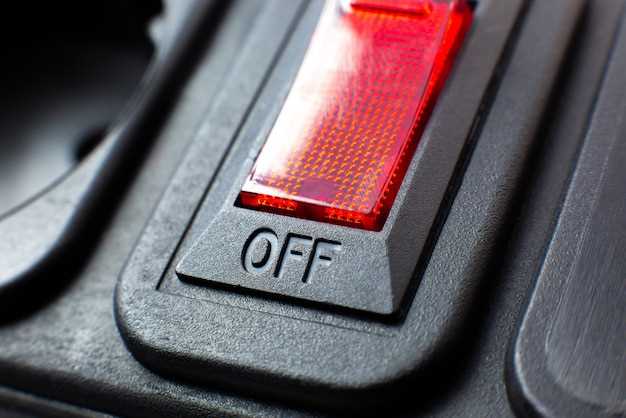
The alternator plays a crucial role in your vehicle’s electrical system, converting mechanical energy into electrical energy to power various components. A well-functioning alternator ensures that your battery remains charged and that electrical systems, such as lights and infotainment systems, operate smoothly. However, like any mechanical component, alternators can fail over time, leading to performance issues.
Identifying the signs of a failing alternator early can save you from more significant problems down the road. Common symptoms include dimming headlights, unusual noises, and warning lights appearing on your dashboard. By understanding these signs, you can address potential issues before they escalate, ensuring that your vehicle remains reliable and safe to drive.
This article will explore the key indicators that suggest your alternator may be on the verge of failure, empowering you to act promptly and maintain your vehicle’s performance. Stay informed about your vehicle’s system and take charge of its care to ensure longevity and efficiency.
Dim or Flickering Dashboard Lights

When your vehicle’s alternator begins to fail, one of the most noticeable signs can be the dim or flickering dashboard lights. The alternator is responsible for charging the battery and powering the electrical systems of your car, including the dashboard lights. If the alternator is not functioning properly, it may struggle to provide a consistent supply of electricity.
As a result, you might notice that your dashboard lights are dimmer than usual or flicker intermittently. This fluctuation in brightness is a direct indicator that the alternator is having difficulty maintaining the necessary voltage for the electrical components. Additionally, if you observe that other electrical systems in the vehicle, such as headlights, power windows, or radio, are also experiencing issues, it further points to a potential alternator problem.
Ignoring these signs can lead to larger problems, including a complete failure of the electrical system or a dead battery. It is crucial to address dim or flickering dashboard lights promptly, as they serve as an early warning that your alternator may be on the verge of failure.
Electrical Accessories Not Working Properly
The alternator is a crucial component of your vehicle’s electrical system. When it begins to fail, you may experience issues with various electrical accessories. If you notice that items such as headlights, dashboard lights, or power windows are malfunctioning, it could be a sign that your alternator is not generating adequate power.
Dim or Flickering Lights are among the first indicators of an inadequate power supply. If your headlights appear dim or flicker while driving, this can signal that the alternator is struggling to maintain the necessary voltage for your electrical system. Additionally, if your dashboard warning lights illuminate inconsistently, it further emphasizes the potential failure of the alternator.
Malfunctioning Electronics, such as your radio, air conditioning, or seat heaters, can also reveal underlying issues. When the alternator is unable to provide sufficient power, these systems may operate erratically or cease to function entirely. This can lead to a frustrating driving experience, often worsened by the insufficient performance of other essential vehicle functions.
Furthermore, frequent dead batteries can indicate that the alternator is not charging them effectively. If you regularly find yourself needing to jump-start your vehicle, the primary suspect could be the alternator failing to maintain the necessary power for your electrical accessories and the battery itself.
In summary, if you are experiencing issues with your vehicle’s electrical accessories, it is essential to diagnose the alternator’s health. Addressing these concerns promptly can help prevent more significant issues and ensure that your electrical system functions optimally.
Unusual Noises from the Engine Compartment

If your vehicle begins to produce unusual noises from the engine compartment, it may indicate an issue with the alternator or the electrical system. Listen for grinding, whining, or squeaking sounds, as these could be symptoms of a failing alternator. A grinding noise may suggest worn bearings within the alternator, while a high-pitched whine could indicate that the electrical system is under strain due to insufficient power generation.
Additionally, if you hear a clicking or popping noise, this may signal that the alternator is struggling to provide adequate voltage, disrupting the balance of the electrical system. Prompt attention to these sounds is crucial, as neglecting them can lead to further damage to your vehicle’s electrical components, leaving you stranded or requiring extensive repairs.
In summary, any unusual noises from the engine compartment should be investigated immediately. These sounds often serve as early warning signals that the alternator may be failing, potentially affecting the overall functionality of the electrical system in your vehicle.





